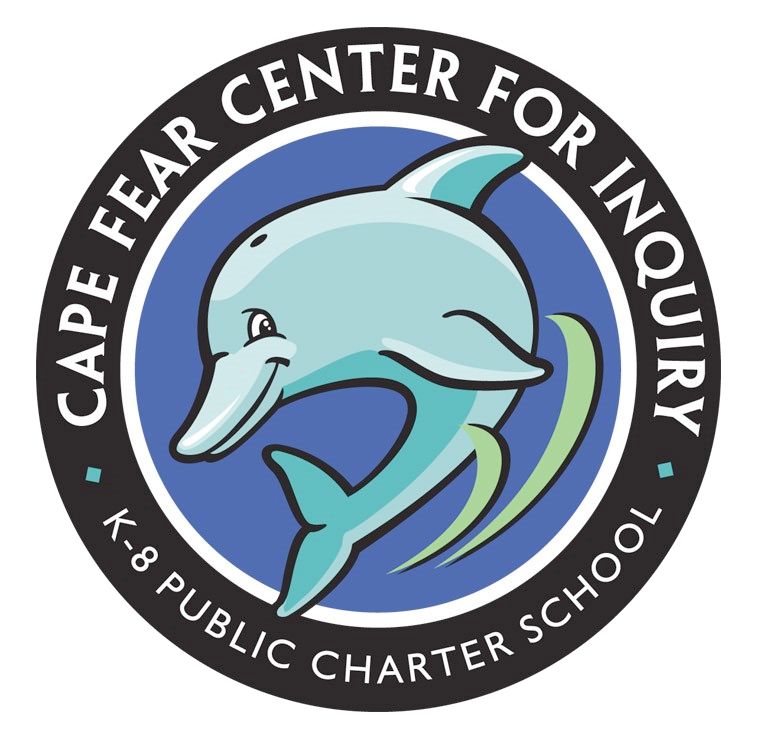CFCI Technology FAQ
FREQUENTLY ASKED QUESTIONS
Why does CFCI believe that a 1:1 program is important?The 1:1 Chromebook Program, which provides mobile computing and wireless technology, has been designed to enhance the delivery and individualization of instruction.
The advantage of a 1:1 program is that students’ learning opportunities are extended beyond the classroom by increasing the students’ access to information from multiple sources. Teachers have the opportunity to deliver instruction in a variety of ways to meet the different learning needs of all students and actively engage students in taking more ownership for learning.
Research shows that a 1:1 computing environment is the most cost effective way to implement technology of all the current models. That same research shows that continuous access to a computing device for every student leads to increased academic achievement and financial benefits. We believe that we can leverage technology to increase student engagement and provide opportunities for students to create, collaborate, communicate effectively, and practice critical thinking. As our teachers learn to work with technology we see the possibility for more personalized learning opportunities, both to learn at a faster pace and to fill in gaps in learning that are critical for future success.
How Can Technology Enhance Learning?We believe technology provides many opportunities to help our students learn. Integrating technology improves student enthusiasm toward learning, making students actively engaged in their classes and taking ownership in their learning. Brain research has proven that students are now learning differently and need new instructional methods to meet their needs.
Our students will be taught how to be effective 21st Century Learners. This means they will be digitally literate and use the four C’s (Creativity, Communication, Collaboration, Critical Thinking) to be global citizens. Student writing and production will increase dramatically. Students will be able to peer review and edit easily and more constructively. The focus on writing will become less of an “exercise” and become more of a crucial method for sharing information or telling stories. The technology allows students to share their writing with vast and different audiences if they choose.
Why Chromebooks?Chromebooks represent a new space in technology – the space between tablets (such as iPads) and laptops. The Chromebook has many advantages including:
- Requires little maintenance and reduced technical support compared to desktops and laptop computers
- Web-based, therefore eliminating the need for downloading or installing software and/or updates
- All files and apps are stored in the cloud, so they are available anywhere you have an Internet connection
- Many of the Chrome apps work without a network connection
- Teachers have many tools at their fingertips to create lessons, assignments and make sure students are fully engaged.
- Student work on the Chromebook automatically saves to Google Drive.
The success of our 1:1 program is measured against the skills needed to excel in a rapidly evolving global society. The notion of what it means to be college and career ready has been reshaped by a world where access and connectivity are becoming ever-present.
By placing connected devices in our classrooms students possess the autonomy to achieve the following core fundamental digital skills:
- CREATE
- COLLABORATE
- EXPLORE
- SHARE WITH THE GLOBAL COMMUNITY
CREATE Students and Teachers will enhance their creativity by developing digital content and showcasing their research and products created through various technologies.
COLLABORATE Students will connect with others and develop PLNs (Personal Learning Networks). As a result, problem-solving will become a collaborative endeavor in which students have to effectively work in teams/groups to realize a solution.
EXPLORE Students will improve their abilities to tackle complex problems through inquiry, utilizing digital resources to enhance their research and ability to gather evidence needed to make informed decisions.
SHARE WITH THE GLOBAL COMMUNITY Students and Teachers will communicate ideas to both local and global audiences.
How much time do students normally spend in front of a screen (of any type)?The amount of time spent using technology varies from grade to grade. Higher grades rely on technology more than younger grades. Teachers were asked to track their screen time use for two weeks, and the highest average number of minutes was 75 and the lowest was 15. When averaging across grade levels, younger students average approximately 30 minutes a day and the average slowly rises up to approximately 60 minutes per day in middle school.
Given our one-to-one status, what are the steps being taken to ensure age-appropriate educational content is the only content being accessed?CFCI use Google Chrome Management with Safe Search & Restricted Mode in conjunction with a strict firewall (called Zscaler) which routes all traffic through its software and restricts any content based on criteria that the school created. We also have on-going random security checks through our firewall to make sure no unwanted content gets through it. Of course, this is an ongoing process. Our firewall has to adapt constantly to potential threats to our network.
What types of technological activities are part of the instructional day at CFCI?Our teachers incorporate many different learning activities throughout the school day including those that require the use of technology. The types of activities vary depending on the grade level as well as the tasks to complete each week. Younger students spend more time completing hands-on activities and less time using technology, whereas in older grades, the split between hands-on type activities and technology is more even. For example, our 2nd grade students will spend time working on Zearn (math app) and Epic (reading) on iPads for a short time each day and our middle school students utilize the google suite (docs, sheets, slides, etc) to work on classwork and submit assignments. In addition to these daily tools, technology is used to bring the world into the classrooms, providing interactive opportunities in classes, connecting students with other students in the world, finding supporting primary sources to complement their research and more! Each teacher can provide a more specific list of technological activities within the classroom.
Where can I find what my child’s assignments for class are as well as when they are due?
Depending the grade level of the student, there are several different options for monitoring classroom assignments as well as progress on learning goals. The most reliable resource to check on progress is to reach out to the teacher for that class. Powerschool is also a great resource for parents to keep track of your student’s progress on each standard in the Middle Grades. Please contact the school Curriculum Coordinator if you need more information on how to access Powerschool for your child. As far as more specific breakdowns for grades, our 4-8 teachers use Google Classroom to assign work as well as provide feedback on assignments. In our younger grades, teachers will send details in weekly newsletters and individual communications.
How necessary is using technology for Eureka math assignments?
There are several opportunities that are built into the Eureka teaching methods that incorporate technology in various forms. All of our teachers are encouraged to review all of the resources available for each lesson and choose those activities that best support our students, including both hands-on activities and technology activities. Parents and students can find additional teaching videos and resources to support the learning in the classroom on the Great Minds website and students get practice developing the concepts learned in class by utilizing Zearn in K-5 and other tools in 6-8. During rotations in our K-5 classrooms, teachers will typically integrate 15-20 minutes of independent practice and Zearn is a great resource to complement the conceptual learning applied in the classroom.
Are there any health risks (EMF) associated with using wireless internet in a one-to-one school?
As technology improves, there is always concern regarding possible harmful effects from long-term use. Based on the most recent research available regarding the harmful effects associated with radio waves, there is no conclusive evidence that using wireless internet in schools causes long-term harm to students or staff. If anyone wishes to discuss any of the specific studies completed, please contact Coordinator of Student Services (Mr. Mac).
Are there resources available to support parents as technology becomes more complex?There are a wide range of supports available to parents as technology becomes more complex. The most easily accessible source of information in his or her own student. Often students are well versed in the various technology available. A second resource is our teachers and support personnel at CFCI. Our teachers are often exposed to many different technologies through the students as well as professional development and they will be able to speak specifically about the technology being used in the classroom. In addition, CFCI is always looking for guest speakers and resources to share with our parents on internet safety, cell-phone safety, cyberbullying, how to talk with your children about the safe use of technology, etc. Please reach out to our school counselor if you are interested in additional information on this topic or in learning of other resources available. Joanne Cress works with our K-8 students and integrates curriculum from Common Sense Media, Netsmartz, and other research-based websites.
What type of damage/theft is covered by the insurance?The school insurance policy related to chromebooks covers incidental damage. Whenever a chromebook is damaged, there is an investigation into the cause of the damage. If it is determined to be an accident or a flaw in design, the insurance will cover the cost of the repair. However, once the repair is made and returned, further damage related to this incident is not covered. Also, if the damage is intentional or the result of neglect, insurance will not be able to cover it and it will be the responsibility of the student to cover the cost of the repair.
What is the school policy on posting pictures on social media?With each enrollment period, families check whether or not they would like photos to be shared (yearbook, school website, social media, etc.). We generate a “no-photo” list and work to make sure that those students photos are not included in these school sponsored materials. If you would like your child to be including in the No Photo list, please email office@cfci.net.
In addition, if you are chaperoning a field trip or visiting our school, we ask that you do not post pictures on your personal social media sites that include pictures of other students. You are welcome to share the pictures you have with the school and we can post them if appropriate. Remember to respect the privacy of others.

